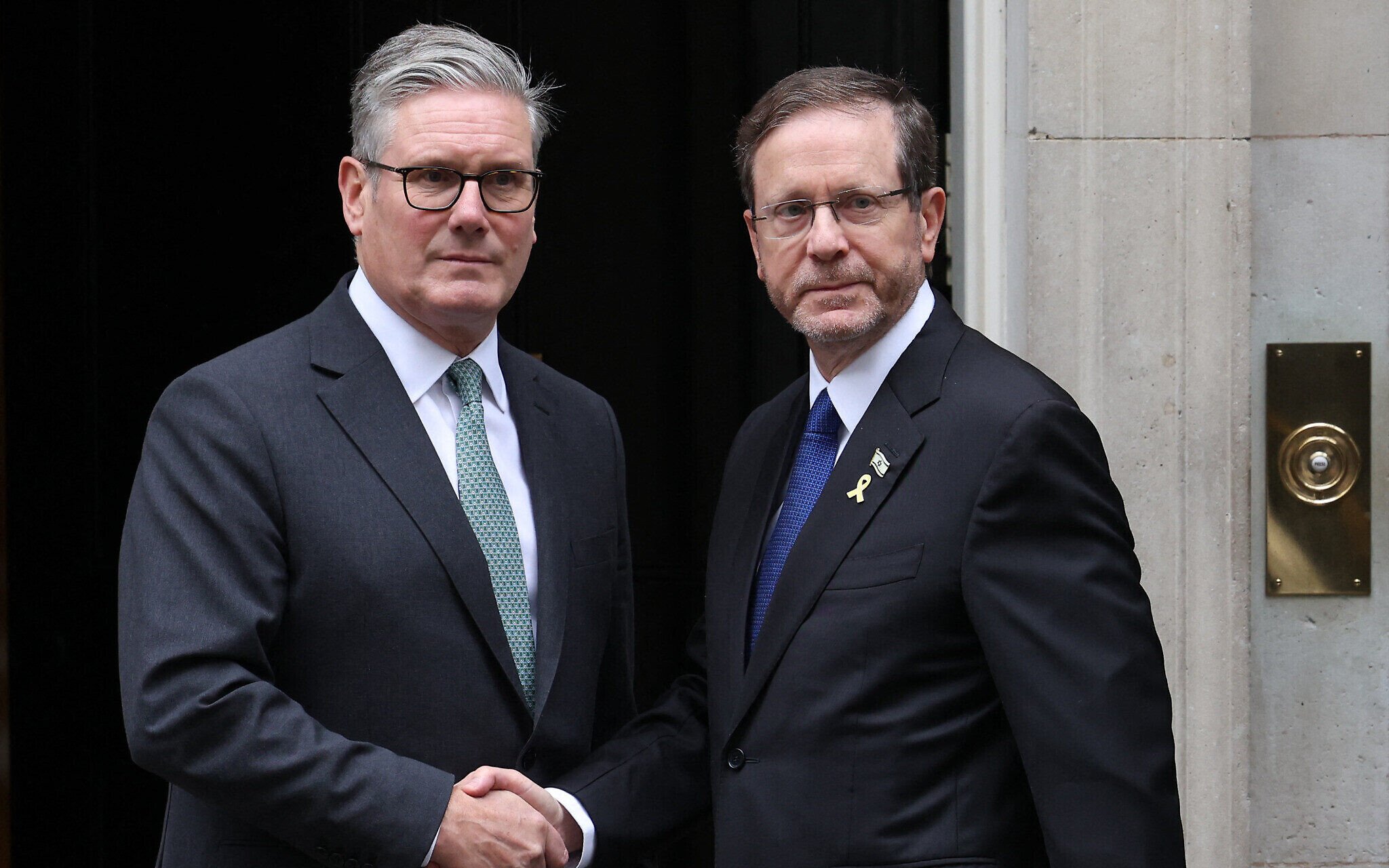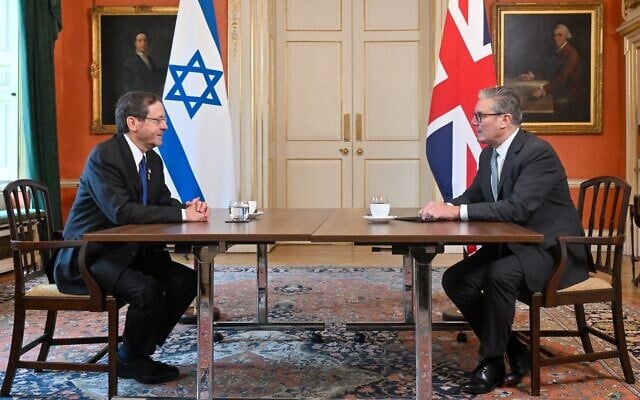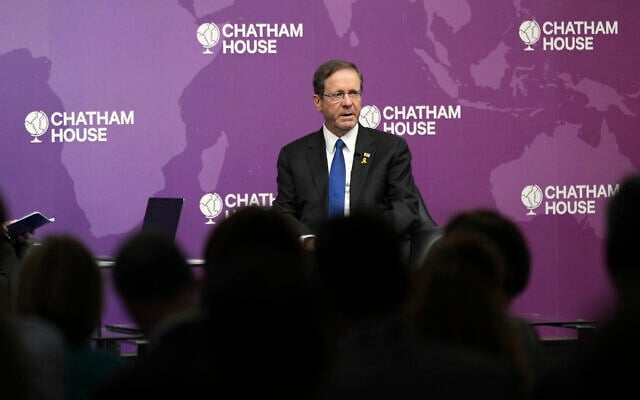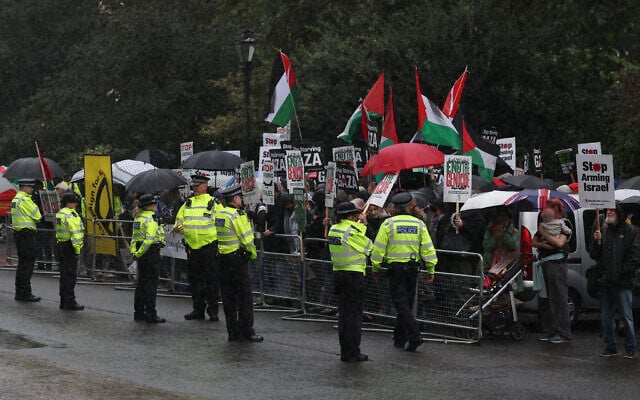


President Isaac Herzog sat down on Wednesday in London with British Prime Minister Keir Starmer for what local media described as a tense meeting, with the Israeli leader strongly criticizing the UK’s decision to recognize a Palestinian state.
The pair did not make any joint public statements, and Starmer had faced criticism from many in his own party for his decision to meet the Israeli leader, as anger grows in the nation over the ongoing war in Gaza. A group of anti-Israel protesters gathered waving Palestinian flags outside 10 Downing Street as the two met.
Asked on Wednesday why he was meeting Herzog, Starmer said: “I will not give up on diplomacy, that is the politics of students.”
Speaking after the Wednesday meeting at an event at Chatham House in London, Herzog said that “things were said that were tough and strong, and clearly we can argue, because when allies meet, they can argue. We are both democracies.”
While they made their disagreements clear, the two leaders both stressed their nations’ longtime relations and continued status as allies, according to their offices.
Ahead of the meeting, a spokesperson for the British prime minister said Starmer planned on raising the issue of the controversial Israeli airstrike on Hamas leaders in Qatar a day earlier, as well as the humanitarian situation in Gaza.
Starmer told MPs earlier Wednesday that he would make it “absolutely clear” that “we condemn Israel’s action” in bombing Doha.
Herzog’s statement following the meeting did not mention any discussion of the strike in Qatar. But the president told the UK’s Daily Mail on Wednesday that senior Hamas leader Khalil al-Hayya was targeted “because he objected to a deal on Gaza. He kept saying ‘Yes, but’ in negotiations.”
“He is number one in Hamas and has the blood of thousands of Israelis on his hands,” Herzog added.
Starmer’s office said that the prime minister expressed his “huge concern” over Gaza to Herzog and implored Israel to change course during their meeting.
A Downing Street spokesperson said Starmer told Herzog that Israel “must stop the manmade famine [in Gaza] from worsening further by letting aid in and halting their offensive operations.”
Starmer also told Herzog that the UK and Israel were longstanding allies and that “he will continue his work to secure an enduring peace and a better future for the Israeli and Palestinian people alike,” the spokesperson added.
In his own statement following their meeting, Herzog said that “Britain and Israel are friends, but among friends there are sometimes disagreements.”
Herzog said he “made clear that the United Kingdom’s stated intention to recognize a Palestinian state at this time would in no way help bring the hostages home, help the Palestinians, or help bring an end to the conflict.”
Instead, he averred, such a move will only “embolden extremists across the Middle East and beyond.”
Starmer announced in July that the UK would recognize a Palestinian state at the UN General Assembly this month unless the Israeli government takes substantive steps to end the war and humanitarian crisis in the Gaza Strip — a move that was swiftly condemned by Israel.
Herzog said Wednesday that he stressed to Starmer that “the immediate and unconditional release of the hostages is both a humanitarian necessity and the only first step on the road to peace.”
The president added that he “voiced strong opposition to any notion of sanctions against the only democracy in the region, and I warned against the dangerous echoing of Hamas’s propaganda campaign of starvation in Gaza, even while 48 hostages remain in brutal captivity.”
In June, the UK sanctioned far-right ministers Itamar Ben Gvir and Bezalel Smotrich and froze trade talks with Israel. And last month the British government announced a ban on Israeli defense firms attending a major London arms fair.
Herzog did praise the UK for its decision to initiate “snapback sanctions” against Iran for its ongoing, repeated violations of the 2015 nuclear deal with world powers, highlighting “the importance of preventing the Iranian regime from rebuilding its nuclear capability.”
Before his meeting with Starmer, Herzog said he would also raise the topic of “the ugly wave of antisemitism rising across the country,” although he did not mention the issue in his post-meeting statement.
Times of Israel staff contributed to this report.




